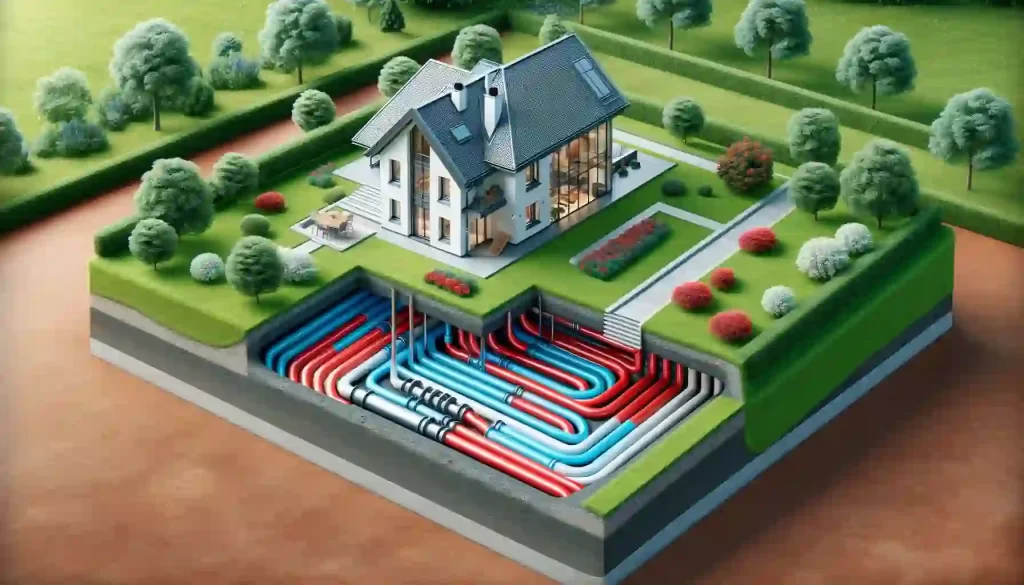Ground Source Heat Pump Systems Explained

A ground source heat pump takes advantage of the heat in the ground to provide your home with reliable heating and hot water. Temperatures underground remain between 10 and 15 degrees Celsius regardless of the time of year, so the system can be utilized all year round.
How ground source heat pumps work
Ground-source heat pumps are composed of 3 different components that work together to transfer heat from the ground into living quarters.
Ground loop
This is a pipe hidden underground, usually underground in the garden, either in a trench or a vertical burrow. A trench goes 2 meters below ground level, while boreholes are drilled deeper down to between 15 and 150 meters. More heat can be retrieved from the ground with longer loops, but available real estate will determine the most suitable area for the extraction of underground heat.
The mixture going around these pipes will be both water and antifreeze. The natural heat from below is absorbed by the fluid, which then goes by way of a heat exchanger to warm a heat pump.
Heat pump
Heated water is passed throughout the house to radiators or underfloor heating systems. If the system is being used to warm water, then the water is sent to cylinders for water storage. A functional Heating system is created when these components are coordinated.
Horizontal trenches and vertical boreholes
The pipes can be installed horizontally or vertically, depending on the space available on your property. Vertical boreholes typically go straight down into the ground and can be as long as 15 – 100 meters. Horizontal systems are shallower but can cover more area. Vertical systems are typically more expensive initially, but they should pay off in the long run.
What is the best heating system for a heat pump?
The heat generated by a ground-source heat pump is best suited to underfloor heating. Radiators usually need to be heated up to about 70 degrees in order to heat rooms, whereas underfloor heating typically operates at 30 degrees. If you’d like radiators as opposed to underfloor heating, you may need to install larger ones.
How efficient are ground source heat pumps?
While they do require electricity, a fully insulated ground-source system can provide roughly 3-4 more kilowatts of energy for every kilowatt of electricity used. That equates to an efficiency of roughly 300 per cent.
Ground source heat pumps can be an efficient and cost-effective method of heating your home, and you may be able to receive government funds to help offset the installation cost.
How to maintain a ground source heat pump
While a ground-source heat pump needs little in the way of upkeep, it’s crucial to watch how it’s functioning. The Ground Source Heat Pump Association suggests that initial safety inspections are not required, though the system should be serviced every five years.
Manufacturers may require their ground-source heat pumps to undergo service maintenance during the warranty period, so always be sure to consult your manufacturer.
How long do ground-source heat pumps last?
The lifespan of a heat pump depends on the kind and how well it continues to be maintained. Some heat pumps may last as long as twenty-five years, but others may need to be replaced after only ten years. Regardless of the heat pump, a ground source heat pump is among the best long-term investments you can make for your house because it can efficiently heat your property for many years.
Is a ground source heat pump right for your home?
First, you’ll need to ensure that your house is of the correct size for a ground source heat pump installation. your house must have enough space in your garden for either a horizontal trench or vertical borehole, and this may require access for various machinery.
It is essential that a well-insulated and draught-free home be utilized to make the most of a ground-source heat pump’s efficiency.
If you need a ground source heat pump installed give us a call or request a call back
